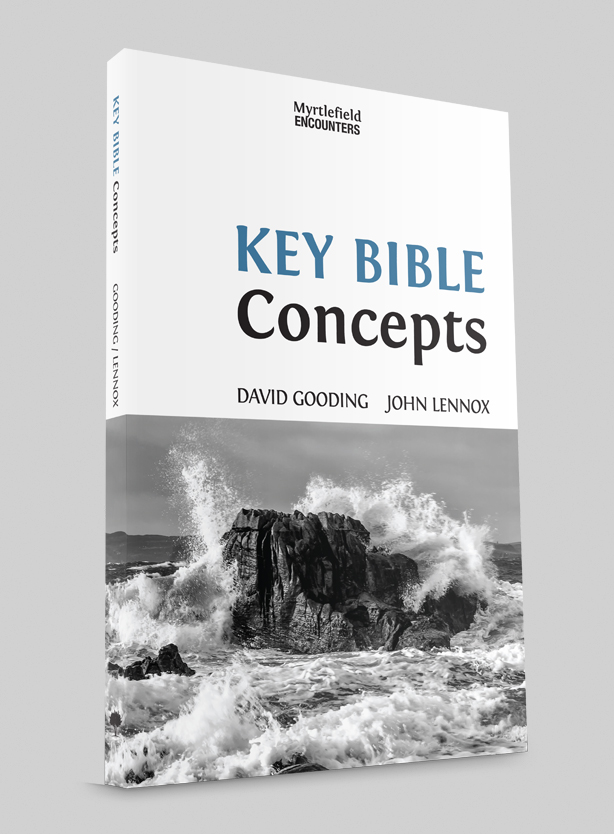“The value of another’s experience is to give us hope, not to tell us how or whether to proceed.” - Peter Block (through Woody Zuill in the beginning of his talk on “Mob Programming”)
Following what John Sonmez had been doing, I am listing here the books I have read the past year.
Here is my list for 2019:
NOTE: Almost all, if not all, of my readings here are what Mortimer Adler calls Inspectional Reading . You cannot expect me to have already mastered all the materials presented in the books listed below. I will have to reread them to master them. ![]()
“The 21 Irrefutable Laws of Leadership” by John C. Maxwell
(Apr 4 - Apr 23, physical book bought in a book sale at Gospel Light Baptist Church in Quezon City last March 31, 2019)

“Key Bible Concepts” by David Gooding and John Lennox
(Apr 13 - May 7, physical book bought at BookSale in SM City Davao)

(Free ebook version can be downloaded at myrtlefieldhouse.com)
from chapter 4 to end of “How to Lead When You’re Not In Charge” by Clay Scroggins
(Apr 12 - Jun 12, physical book bought from BookDepository.com)
(chapter 1-3 was read last Mar 6-9, 2018)

“SPRINT: How to Solve Big Problems and Test New Ideas in Just Five Days” by Jake Knapp, John Zeratsky and Braden Kowitz
(Jun 3 - Jun 14, physical book bought from BookDepository.com)

“Start With Why: How Great Leaders Inspire Everyone To Take Action” by Simon Sinek
(Jun 14 - Jun 27, physical book bought from BookDepository.com)

“When you compete against everyone else, no one wants to help you. But when you compete against yourself, everyone wants to help you.
More quotes here
week 1 & 2 of “IT Security: Defense against the digital dark arts - Coursera” by Google
(Jun 20 - Jul 7, course from Coursera)

I took this course because I needed to learn more about authentication and authorization and other security-related topics. And because it is offered by Google rather than by a university, I assumed that the lectures or contents of the course will be easy to understand ![]() … They are easy to understand!
… They are easy to understand!
“The Software Craftsman” by Sandro Mancuso
(Jun 22 - Aug 10, physical book barrowed from the mini library of Arcanys)

“Agile does not solve any problem, it exposes them.”
More quotes here
{#mere-christianity}
“Mere Christianity” by C.S. Lewis
(Aug 11 - 24, physical book bought at FullyBooked of Ayala Center Cebu)

One of the greatest books ever written!
Here’s a youtube video of a summary of this book: “Mere Christianity by C.S. Lewis Animated Book Review/Summary”. The quote at the end of that video was the thing which made me to want to buy this book. (Also, a facebook friend, who I am still to meet in person had recommended any C.S. Lewis book for me to read.)
You have to read this book!
part I (chapters 1-11) of “Accelerate: The Science of Lean Software and Devops: Building and Scaling High Performing Technology Organizations” by Nicole Forsgren, Jez Humble, and Gene Kim
(Aug 17 - Sep 8, physical book bought from BookDepository.com)

“Surrounded by Idiots” by Thomas Erikson
(Aug 26 - Sept 7, physical book bought at FullyBooked of Ayala Center Cebu)

{#the-mythical-man-month}
chapters 1-9, 11-12, 16-17 of “The Mythical Man-Month (Anniversary Edition)” by Frederick P. Brooks, Jr.
(Sept 19 - Oct, physical book barrowed from the mini library of Arcanys)

The major lesson I learned from this book is the importance of what the author calls “Conceptual integrity” of a software system:
I will contend that conceptual integrity is the most important consideration in system design. It is better to have a system omit certain anomalous features and improvements, but to reflect one set of design ideas, than to have one that contains many good but independent and uncoordinated ideas.
Conceptual integrity in turn dictates that the design must proceed from one mind, or from a very small number of agreeing resonant minds.
… I will certainly not contend that only the architects will have good architectural ideas. Often the fresh concept does come from an implementer or from a user. However, all my own experience convinces me, and I have tried to show, that the conceptual integrity of a system determines its ease of use. Good features and ideas that do not integrate with a system’s basic concepts are best left out. If there appear many such important but incompatible ideas, one scraps the whole system and starts again on an integrated system with different basic concepts.
Too bad I did not learn this much earlier in my career as a programmer.
“Refactoring from Anemic Domain Model Towards a Rich One” by Vladimir Khorikov
(Sept 27 - Oct 19, video course from Pluralsight)

chapters 1-3, 5-7, & 10 of “Foundations of Security” by Christoph Kern
(Oct 9 - Nov 17, physical book bought from BookDepository.com)

chapters 1-5 of “How to Read a Book : The Classic Guide to Intelligent Reading” by Mortimer J Adler, and Charles Van Doren
(Nov 2 - Dec 11, physical book bought at BookSale in Robinson’s Fuente, Cebu)

chapters 1-4, & 12 of “Concurrency in C# Cookbook : Asynchronous, Parallel, and Multithreaded Programming (2nd edition)” by Christoph Kern
(Dec 19 - Jan 5, 2020, physical book bought from BookDepository.com)

(not book) “The Deadly Isms, Season 1” by Matt Kibbe
etc.
